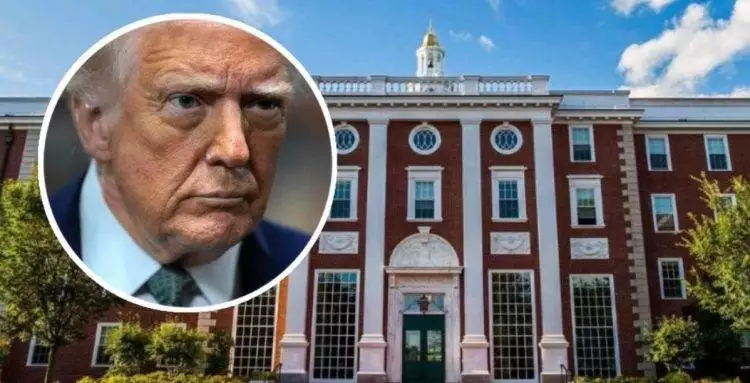The Trump administration recently froze billions of dollars in funding to Harvard University after the school refused to comply with a set of controversial demands.
Harvard’s rejection of these demands marks a big moment in the ongoing tension between private institutions and federal government influence.
The university’s leadership called the proposed changes a direct threat to its independence, prompting this clash.
Harvard refused the deal, and now funding is frozen
The Trump administration quickly froze $2.3 billion in federal funding for Harvard University after the school pushed back against the government’s demands. These included changes in admissions, faculty management, and a crackdown on certain student organizations.
The freeze applies to both grants and multi-year contracts. This is a significant financial hit for one of the wealthiest universities in the world, and it raises larger questions about government control over academic freedom.
Harvard said the demands go too far
Harvard’s president, Alan Garber, was clear in his response to the administration’s request. He stated that the university would not comply with demands that interfered with its ability to operate independently.
For Harvard, this wasn’t just about rejecting certain policies, but about protecting the university’s constitutional rights. The government’s plan to enforce changes in the university’s diversity programs and faculty decisions went too far, according to Garber.
Protest rules and diversity programs were top targets
The Trump administration’s letter demanded that Harvard take steps to change its campus culture.
This included eliminating certain diversity, equity, and inclusion programs, banning masks at protests (which seemed aimed at stifling pro-Palestinian movements), and implementing merit-based hiring practices.
These measures were part of the broader attempt to control what happens at universities, especially when it comes to protest actions and faculty decisions.
Columbia faced this before Harvard
Interestingly, Harvard wasn’t the first to face such drastic funding threats. Columbia University, another prestigious institution, was the first to experience funding cuts due to its refusal to follow the government’s demands.
Columbia ultimately agreed to significant changes in its policies to avoid losing hundreds of millions of dollars. Harvard’s refusal to bend, however, marked a more forceful resistance to what many saw as an authoritarian move by the administration.
The administration also targeted students and faculty
The government’s letter didn’t just focus on university leadership. It also demanded changes that directly impacted students and faculty.
For instance, the Trump administration pushed for a crackdown on certain student groups, especially those involved in pro-Palestinian protests.
Additionally, there were calls to limit faculty power, particularly for those whose work focused on activism rather than traditional scholarship.
Harvard warned of real-world consequences
Harvard was quick to point out the broader impact of these actions, stating that the government’s freeze would not only harm the university but also negatively affect the nation’s economic and health sectors.
Harvard’s research and educational efforts play a key role in various critical sectors, and cutting these funds could have far-reaching effects on health, security, and academic freedom across the country.
Critics say this is authoritarian overreach
Many critics, including Harvard faculty, see these demands as an overreach. They argue that the government is stepping beyond its bounds by attempting to dictate what can and cannot be taught at universities.
This view is especially strong among academic professionals who see this as a direct attack on the principles of free speech and intellectual independence that higher education has long upheld.
Students, alumni, and faculty pushed back
In response to the funding cuts, a broad group of Harvard alumni, faculty, and students rallied against the administration’s actions.
A lawsuit was filed to challenge the legality of the funding freeze, with many claiming that the government was violating Harvard’s constitutional rights.
The university’s community pushed back not just on the specific demands but also on the larger issue of academic freedom.
The lawsuit says the cuts break the rules
The lawsuit filed by the American Association of University Professors argues that the Trump administration has failed to follow the proper legal processes before cutting off federal funding.
The group claims that the government’s move violates federal law, especially because it has not given Harvard proper notice or a chance to contest the cuts in a transparent way.
Officials said this is about civil rights
The Trump administration has justified its actions as part of a broader push to combat antisemitism on college campuses.
“President Trump is working to ‘Make Higher Education Great Again’ by ending unchecked anti-Semitism and ensuring federal taxpayer dollars do not fund Harvard’s support of dangerous racial discrimination or racially motivated violence,” a White House spokesperson said.
They argue that the cuts are necessary to ensure that universities uphold civil rights and prevent violent, discriminatory behavior.

















































